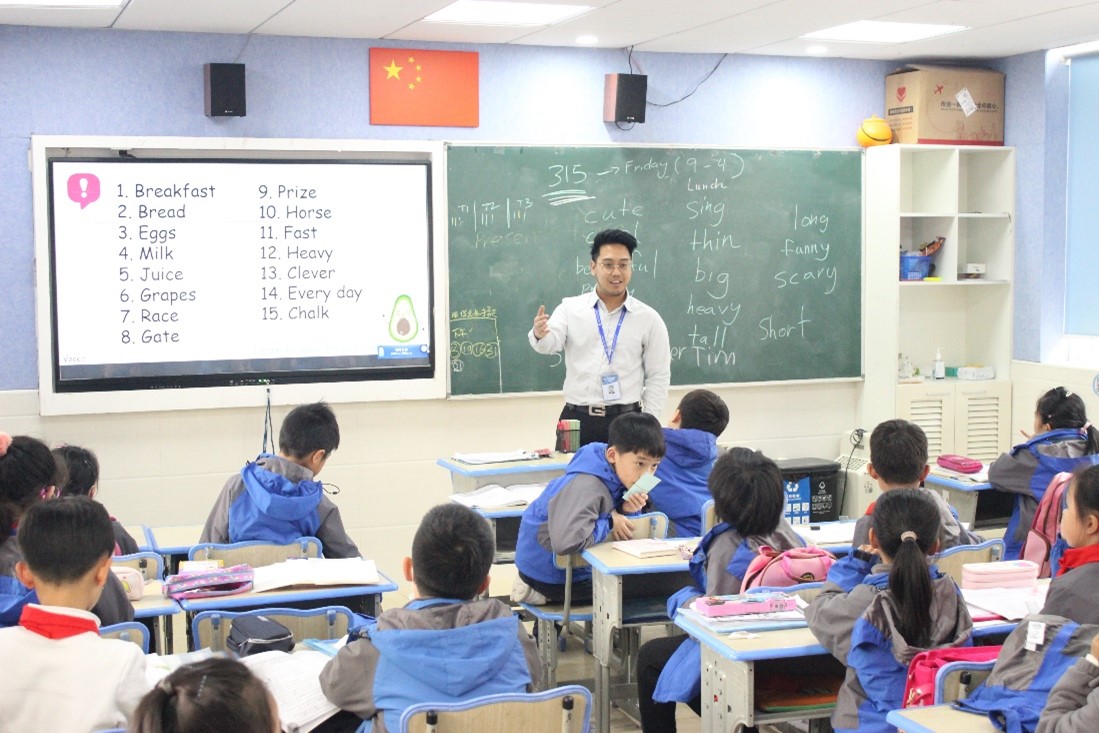What are the different types of schools you can teach in abroad?
This post gives you an understanding of the different school types teachers work in when using their PGCE/TEFL qualification whilst traveling.

Introducing the Author
To me, teaching English abroad is one of the best methods for people to experience new cultures around the world. Whether you’re traveling in Asia, Europe or another land away from home, I believe teaching abroad gives travelers a whole new insight into local life; by being a teacher in the community of your utopia. This post is for you if you are thinking about using your degree to join those who travel and teach or if you are already doing it, it’s to give you more information on what different institutions can offer you.

In many places across the world, it is not as simple as just being a ‘teacher’. Depending on the organisation you apply for, you might feel more like a ‘teaching contractor’ or a ‘part time private phonics specialist’. In my case, locally in China many organisations refer to us as ‘Foreign experts’. The organisation you work in depends on the role you have (and the pay you can expect to receive). Thus, after reading this post you’ll have more information on which option you should opt for – teaching at a training centre, bilingual school or an International school. This post will use an interview conducted with another experienced teacher to bring you a well-rounded insight, but first, let us get our definitions right.
What are the differences between training centres, bilingual and international schools
A training centre is a privately owned institution which parents pay for around school to aid their child’s learning. On the other hand, a bilingual school is a traditional brick and mortar school just with an international language department. Finally, an international school Is one which has a significant number of international students. In addition to this, in order to be considered an international school, the curriculum much vary from that of the host country.
What it’s like to work in a teaching role abroad.
This part of the article shall draw upon an interview conducted with Tim Enriquez, a teacher who worked in a training centre in Shanghai and left that position to join a bilingual school.

“What was the main difference in working in a training centre compared to a bilingual school?"
"Having worked in both environments, the main difference between the two options is usually the working schedules. Bilingual/international schools follow the same routine that most students grew up for their education, meaning a standard Monday to Friday school routine is to be expected. It is worth noting that some schools start earlier than 9am and finish later past 3pm, so you will have to get into that early bird mindset of waking up bright and early. This just means, however, that you have evenings and weekends off. Class sizes would be big, usually reaching max 30 students.
Training centres on the other hand follow a different schedule. Think of it as an after-school learning facility aimed to provide students further development on their English ability. As a result, this would mean your working schedule will have to work around their normal school hours, usually after school on the weekdays and mostly weekends. However, this just means you usually have most of the day off in the weekdays, only working late and your weekends being your busiest days. So, if you are a night owl, then maybe this working environment is more suitable. In addition to this, class sizes are smaller due to a greater focus on each student, usually reaching a maximum of 15 students."

“Why did you choose to work at a training centre?”
“Having entered China with no teaching background myself but a degree in Business Management, my options were quite limited initially. The training centre that took me in (EF) not only gave me the opportunity and foundation to develop as an ESL Teacher but allowed me to put into practice what I have learnt in a classroom setting. Which in turn, helped me nail my interview and land my current job today, a bilingual school.”

What is the pay difference between the different school types.
“It is known that most training centres offer entry level pay whilst
other school types can be more lucrative, is that right?”
“Honestly, this will depend on the school itself and what they offer you at the time; because of this, pay scale will vary quite an amount depending on the demand for teachers. That being said, I can wholeheartedly admit moving to a bilingual/international school was a significant pay rise comparison to my time at a training centre. However, because of the recent pandemic, all schools will try to match that market demand to secure their teachers and reduce staff turnover. In addition to this, qualifications and experience will also determine your initial salary. If you have a degree at a top university plus you have a PGCE you could land a job at a top international school, international schools are known to be the highest paid. However, some bilingual schools pay higher than some international schools. Funnily enough, some training centres pay more than International schools but the majority of jobs on the market follow this rule from lower bracket to higher bracket, Training centre, Bilingual school and then International school. With that rule in mind, I have friends who moved to another training centre offering more than my current schools offer, despite arriving to China around the same time and both having similar work experiences. Thus, you have to apply for every position and bring your A game to each interview. As well as this, It is worth mentioning that unlike western countries, some schools in Asia allow negotiation of salaries, so whichever work environment you end up going to, make sure to try haggling because as the saying goes ‘if you don’t ask, you don’t get.’.”
If you’d like more information on pay scale particularly for Shanghai click here
“Training centres often have different schedules to that of the typical 9-5, how did you find this?”
"From a training centre stance, personally I usually did not do anything productive in the morning, and by the end of the day, it would be too late to do anything. I did travel on my off days in the weekdays, but when my friends slowly transitioned to a normal Monday – Friday schedule, it was hard meeting up with them, and catching up with friends from back home was difficult considering the time difference (I’m from the UK) and working weekends at the time.
When I changed schools, things slowly got better for me personally although the 8:30-4:30 structure at the bilingual was a little difficult at the beginning, especially since naturally I was not an early bird. But like with most jobs, once you got into a good routine, things eventually get easier.
Eventually I grew to love doing things in the evenings again and getting that part of my social life back, and when I got into the routine of it, it felt great living abroad again. It does come down to what you feel like is best for you and having done both work environments, personally making this change was best for me."
“What advice would you give to someone who’s thinking of starting in a new teaching role?”
“If you feel like you are a night owl, you like having flexible hours and do not mind the weekend grind, then I would say training centres are for you. If you feel like you are an early bird and you like sticking to a traditional routine, then I would say bilingual/international schools are for you.”
That concludes our interview with Tim, we hope it added value and if you’d like to work in a similar role as Tim. We’d love to help you find that dream job here.





Responses